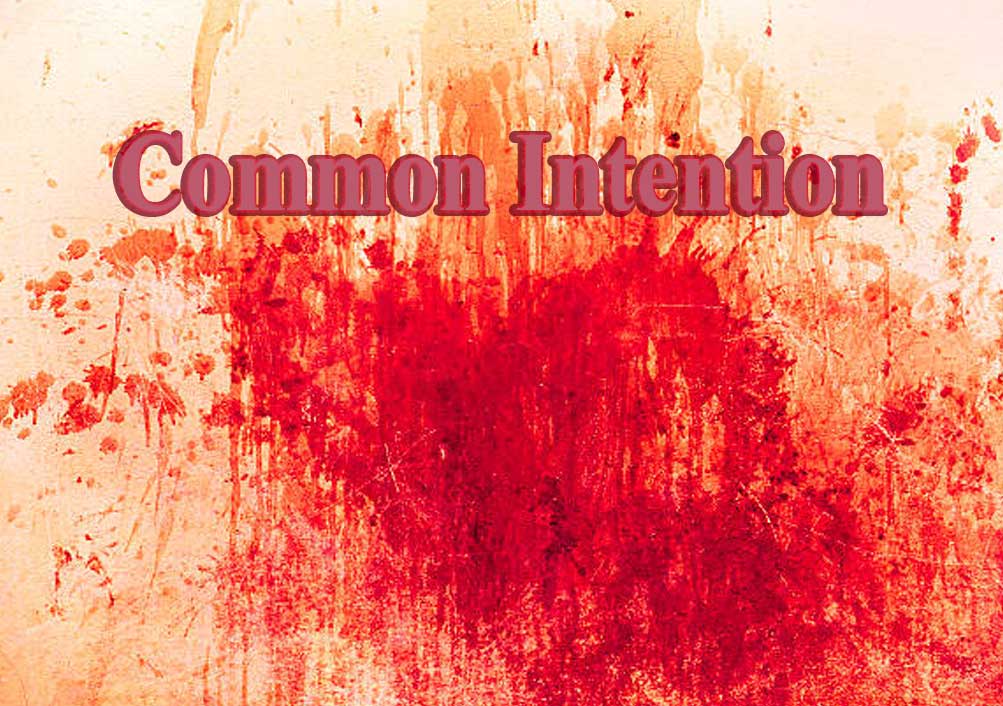Criminal act must have been done in furtherance of common intention of all accused, in order to attract prosecution u/s 34 of IPC: Supreme Court

Read Judgment: Gadadhar Chandra V. The State of West Bengal
Pankaj Bajpai
New Delhi, March 15, 2022: Finding that non-examination of two crucial eye witnesses in the present case made the prosecution case about the existence of a prior concert and prearranged plan extremely doubtful, the Supreme Court has opined that common intention contemplated by Section 34 of IPC presupposes prior concert and it requires a prearranged plan before a man can be vicariously convicted for the criminal act of another.
A Division Bench of Justice Abhay S. Oka and Justice Ajay Rastogi observed that criminal act must have been done in furtherance of the common intention of all the accused, in order to prosecute u/s 34 of IPC.
Going by the background of the case, way back in 1976, one Khiroda Mohan Paul, Head Master of a High School, and the deceased Purna Chandra Ghosh, assistant teacher in the said school, were returning home from the school in evening. When they came near the railway gate, the accused (Gadadhar Chandra (Appellant) and Arjun Mondal, a juvenile) came running from behind and caught hold of the bicycle of deceased Purna Chandra Ghosh. After assaulting and brandishing his knife, Arjun stabbed the deceased with his knife.
On an earlier date, this Court directed the counsel appearing for the respondent – State of West Bengal to take instructions on the progress of the trial against Arjun before the Juvenile Justice Board. The counsel however stated that the record of the Juvenile Justice Board has been destroyed in the floods of 2000, and hence, the case against Arjun has not progressed. Later, Sessions Court convicted the appellant-accused for an offence punishable u/s 302 r/w/s 34 of IPC. Hence, present appeal.
After considering the submissions, the Top Court found that the prosecution relied upon the statement of Arjun recorded u/s 164 of CrPC.
However, even assuming that it is a confessional statement, in view of Section 30 of the Indian Evidence Act, 1872, the same cannot be used against the appellant as Arjun is being separately tried before the Juvenile Justice Board, added the Court.
Speaking for the Bench, Justice Oks noted that it is not the prosecution case that the appellant and Arjun were waiting for the deceased near the road by which the deceased used to go back to his village after attending the school.
“The relationship between the appellant and Arjun is not brought on record. If, according to the prosecution case, there was a meeting of minds and prior concert between the appellant and Arjun when they were sitting with Susanta Kr. Chandra and Rabu, the prosecution ought to have examined both Susanta Kr. Chandra and Rabu. In fact, they appear to be eye witnesses to the incident. They were privy to the conversation between the appellant and Arjun. The prosecution has not explained its failure to examine these two crucial witnesses, who apart from being eye witnesses, were sitting along with the appellant and Arjun just before the incident near the place of incident”, added the Bench.
Finding that prosecution has withheld the evidence of two material witnesses who could have thrown light on the incident, Justice Oka said that the present is a case for drawing an adverse inference against the prosecution.
Accordingly, the Apex Court allowed the appeal and concluded that the prosecution has failed to prove ingredients of Section 34 of IPC and the appellant has been implicated only with the aid of section 34.
Sign up for our weekly newsletter to stay up to date on our product, events featured blog, special offer and all of the exciting things that take place here at Legitquest.




Add a Comment